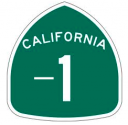Recently, I had a conversation with Anaïs Saint-Jude, a PhD in French Literature at Stanford  University about the lack of emotional fibre and humanity in Facebook’s commoditized version of connectedness (which I don’t fundamentally agree with).
University about the lack of emotional fibre and humanity in Facebook’s commoditized version of connectedness (which I don’t fundamentally agree with).
When I studied Economics at the University of Melbourne, we learned about subsistence economies drove people to live in towns and communities so they could barter as there was a lack of liquidity and divisibility in exchangeable goods and services. Along comes money and currency and solves that problem.
So Facebook doesn’t make sense as the whole word does not want to be open (need to live so close together like in pre-currency days to trade goods and services). There is no economic requirement to do so.
Yesterday I was reading an article on Google’s + 1 project and I thought about what my friend and I discussedand it occured that from a math perspective (Google is all math – a play on the name http://en.wikipedia.org/wiki/Googol) and so I find it amusing that software guys are creating technologies that go against with the laws of economics.
So I was thinking of the lack of privacy and the fact that I’m sure one person on every persons Facebook account is not really connected….. hence the math is “minus 1”.
So whilst the project being pursued by Google and other is more, more, more, social, social, social – I think there are lots of people (or atleast a segment) which are thinking less, less, less, privacy, privacy, privacy – which leads me to the economic rationale that we are in a social bubble and the laws of http://en.wikipedia.org/wiki/Diminishing_returns will prevail and people will find that they get less value from adding more Facebook members.
Hence, I do believe in an economic (and might I say humanities) solution is “prive-1” (“prive” is French for private” less one). That is an economic truism I feel will result from the overproduction of friends on Facebook and feel a business will result from this theory.
 As all software developers will tell you, getting in the zone is critical to execution. When I caught up with Jay McKinsey recently, we discussed the cloud and the requirements for helping clients manage product catalogs and dealer databases in the age of hyper growth e-commerce sales.
As all software developers will tell you, getting in the zone is critical to execution. When I caught up with Jay McKinsey recently, we discussed the cloud and the requirements for helping clients manage product catalogs and dealer databases in the age of hyper growth e-commerce sales.

